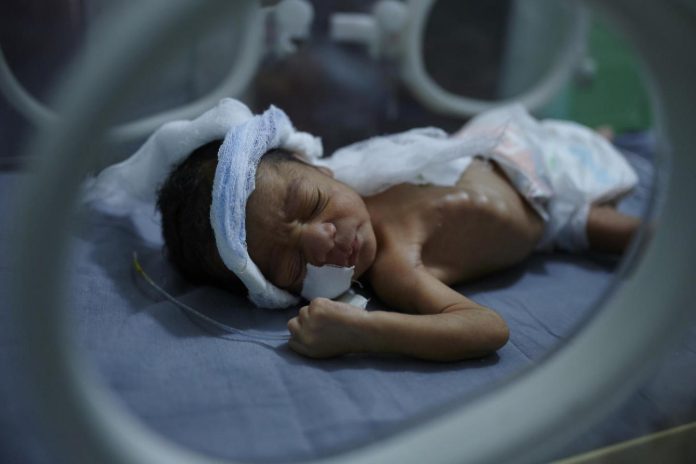A new report finds that 152 million pre-term births were recorded from 2010 to 2020 globally.
An estimated 13.4 million babies were born pre-term in 2020, with nearly one million dying from preterm complications, according to the report released by the United Nations agencies and partners.
This is equivalent to around one in 10 babies born early (before 37 weeks of pregnancy) worldwide.
The report, titled, ‘Born too soon: Decade of action on preterm birth,’ produced by the World Health Organisation and the United Nations Children’s Fund together with the Partnership for Maternal, Newborn & Child Health – the world’s largest alliance for women, children, and adolescents, sounds the alarm on a “silent emergency” of pre-term birth, long under-recognized in its scale and severity, which is impeding progress in improving children’s health and survival.
Pre-term birth is now the leading cause of child deaths, accounting for more than one in five of all deaths of children occurring before their fifth birthday
The report includes updated estimates from WHO and UNICEF, prepared with the London School of Hygiene and Tropical Medicine, on the prevalence of pre-term births. Overall, it finds that pre-term birth rates have not changed in any region in the world in the past decade, with 152 million vulnerable babies born too soon from 2010 to 2020.
Pre-term birth is now the leading cause of child deaths, accounting for more than one in five of all deaths of children occurring before their fifth birthday. Pre-term survivors can face lifelong health consequences, with an increased likelihood of disability and developmental delays.
The report notes that only one in 10 extremely preterm babies (<28 weeks) survive in low-income countries, compared to more than nine in 10 in high-income countries. Gaping inequalities related to race, ethnicity, income, and access to quality care determine the likelihood of pre-term birth, death, and disability, even in high-income countries.
A Press statement from WHO said, “Southern Asia and sub-Saharan Africa have the highest rates of pre-term birth, and pre-term babies in these regions face the highest mortality risk.
“Together, these two regions account for more than 65 per cent of pre-term births globally.”
The report also highlights that the impacts of conflict, climate change and environmental damage, COVID-19, and rising living costs are increasing risks for women and babies everywhere.
For example, air pollution is estimated to contribute to six million pre-term births each year. Nearly one in 10 pre-term babies are born in the 10 most fragile countries affected by humanitarian crises, according to a new analysis in the report.
PREMATURE BABIES can face lifelong health consequences, with an increased likelihood of disability and developmental delays
“Maternal health risks, such as adolescent pregnancy and pre-eclampsia, are closely linked to pre-term births. This underlines the need to ensure access to sexual and reproductive health services, including effective family planning, with high-quality care in pregnancy and around the time of birth. ”
The Director for Maternal, Newborn, Child and Adolescent Health and Ageing at WHO, Dr. Anshu Banerjee, said, “Ensuring quality care for these tiniest, most vulnerable babies and their families is absolutely imperative for improving child health and survival.
“Progress is also needed to help prevent pre-term births — this means every woman must be able to access quality health services before and during pregnancy to identify and manage risks.”
Also, the Executive Director, PMNCH, Helga Fogstad, said, “Born too soon underlines why we must increase investment and accountability for pre-term birth – the world’s largest cause of death of children under the age of five.
“Progress is flat-lining for maternal and newborn health, as well as the prevention of stillbirths, and is now pushed back further through the devastating combination of COVID-19, climate change, expanding conflicts, and rising living costs.
air pollution is estimated to contribute to six million pre-term births each year
“By working together in partnership – governments, donors, the private sector, civil society, parents, and health professionals – we can sound the alarm about this silent emergency, and bring pre-term prevention and care efforts to the forefront of national health and development efforts, building human capital by supporting families, societies and economies everywhere.”
According to research publisher and open science platform, Frontiers, the highest rates of pre-term births occur in Sub-Saharan Africa and Asia, which account for half of the world’s births.
Thus, Sub-Saharan Africa and Asia are responsible for more than 60% of the world’s pre-term babies and more than 80% of the world’s 1.1 million neonatal fatalities per year.


